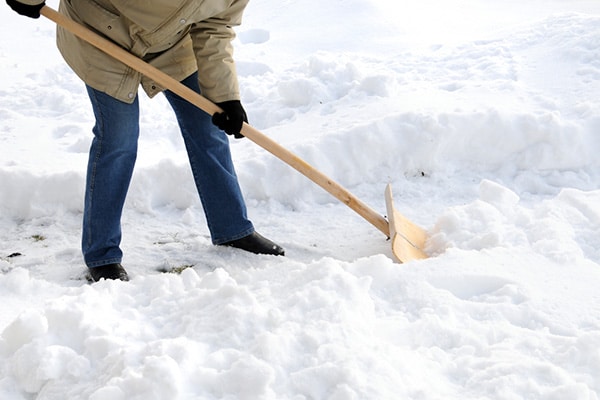Staying warm when the temperatures start to drop isn’t just about comfort; it’s about safety. While keeping your auto and home insurance coverage updated is an essential part of protecting yourself from extreme weather, here are seven more tips to ensure you stay protected when things get frigid.

Only travel if you must
During extreme cold, it’s best to just stay home, if possible. Traveling in that kind of weather increases your risk of encountering slippery road conditions and possibly ending up with frostbite. If you must get on the roads, make sure you take extra care while driving, keep your gas tank full and carry an emergency kit that includes things like a flashlight, extra blankets, warm clothes, food, and water in case you find yourself stranded.
Dress warm
Dressing in loose-fitting layers when you leave the house is key when it comes to keeping you toasty. The air between the layers, combined with wintery materials like wool, helps trap body heat. Synthetic wicking fabrics can also help you stay dry and warm.
Protect your extremities
Your extremities, including finger, toes, earlobes, and the tip of your nose, are the most vulnerable to frostbite if they aren’t properly protected. If you go outside, make sure these areas are covered. When it comes to your hands, opt for mittens instead of gloves to better warm your fingers.
Don’t push yourself too hard
If there’s physical labor to be done outside that isn’t immediately necessary (shoveling the driveway, for instance), consider waiting until temperatures have risen beyond dangerous levels. Vigorous exercise in the snow can make things harder on your heart, especially for people who struggle with high blood pressure or heart disease.
Take it easy on ice
Rock salt loses its effectiveness when below 10 degrees Fahrenheit and can leave you with slippery, dangerous sidewalks and driveways. Use ice melt on these surfaces and spread gritty materials like sand to increase traction. While walking, take short, slow shuffling steps to avoid a spill, and consider purchasing winter traction devices for your shoes.
Know the signs of frozen pipes (and how to stop them)
Water pipes are susceptible to freezing and bursting in cold weather, which can result in pricey water damage to your home. To protect your pipes, let cold water drip from your faucets and open the cabinets under your sinks to allow them more exposure to the home’s heating. You can also wrap your pipes in insulation for extra protection.
Watch over babies, pets, and the elderly
Babies and the elderly have a harder time regulating their body temperature than younger adults, so extreme cold poses and even higher danger for them. Make sure they remain properly bundled up and out of the extreme temps, if possible. Check in with your older neighbors and relatives to ensure they have what they need to stay warm. Pets should also always be provided with warm shelter and not be left outside to fend for themselves in the cold.
During these cold winter snaps, we encourage you to reach out to AgQuest/ MN River Insurance to help answer any questions you have regarding your farm, home, auto, or commercial insurance coverage. Our experienced agents can help answer your questions and find the best coverage that is tailor fit for your specific needs. Don’t leave yourself exposed to the unexpected; contact AgQuest/MN River Insurance today!
